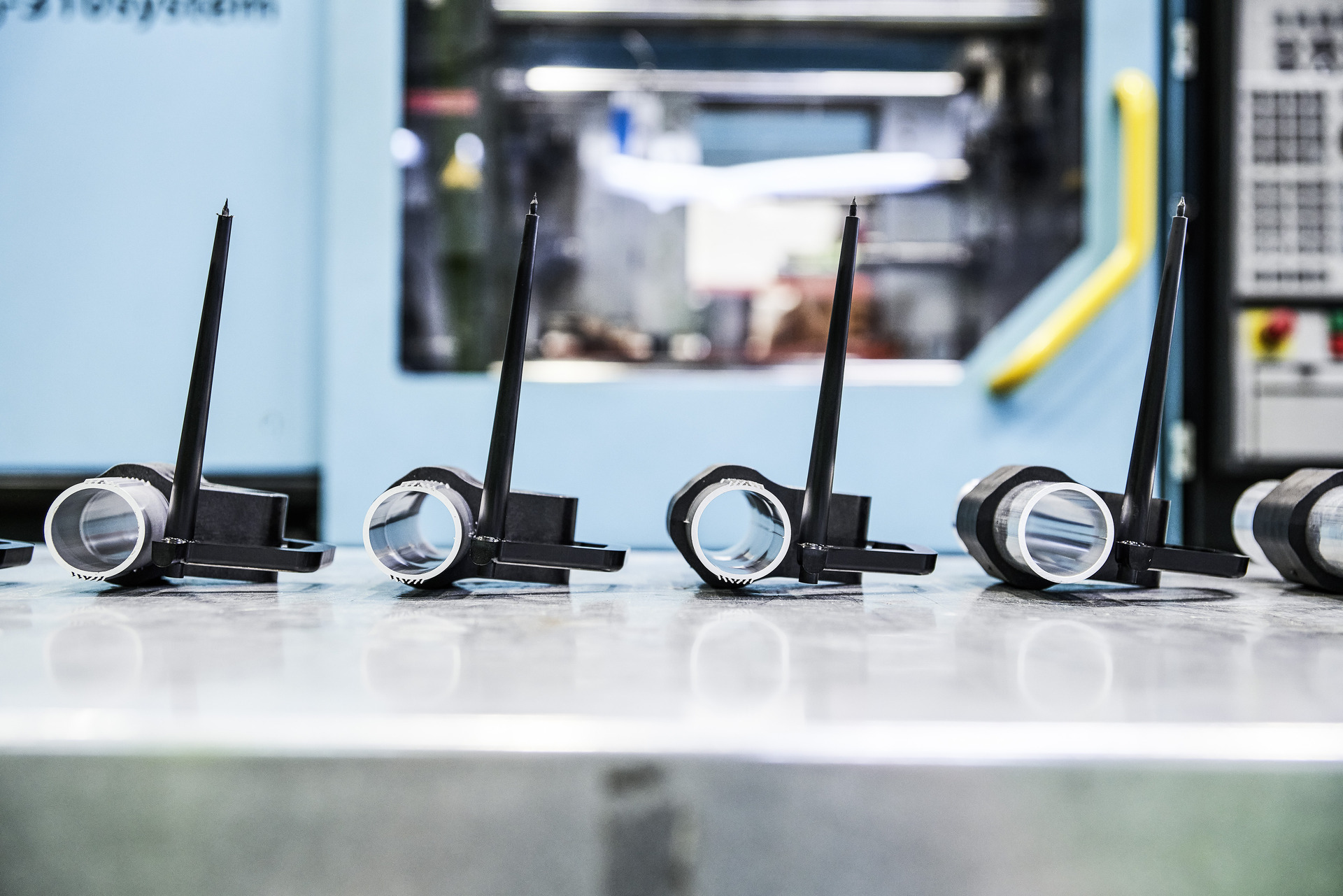
Lanxess has developed hollow-profile hybrid technology incorporating metallic hollow profiles that can be functionalized on conventional injection molding machines with fiber reinforced plastic.
The components are made of highly reinforced polyamide 6 material such as Durethan BKV60H2.0EF DUS060, which has a short glass fiber content of 60% by weight.
According to the company, the resultant plastic-metal composite components have better greater torsional stiffness and strength than could previously be achieved with other technologies for functionalizing hollow profiles. Developing the profile technology involved ensuring that the profiles withstood pressures 400 to 500 bar in the cavity without requiring inside support.
‘With the aid of innovative tolerance management, we can prevent profiles of that type from damaging the mold or stop leaks occurring in the injection molding cavity,’ said Dr Matthias Theunissen, engineer at Lanxess.
One simulation involved testing the compound material for use in an automotive cross car beam Typical load cases and component properties were calculated, such as vibration behavior and the stiffness of the steering wheel in the direction of gravitational forces. According to Dr Theunissen, the component design showed around 30% less weight than an all-steel structure while offering better mechanical performance ‘in some respects’.
‘The component also underlines the huge potential of the technology in implementing cost-saving functional integration,’ he said. ‘For example, connections for the A-pillar as well as mountings for the steering column, dashboard, climate control units and airbags were directly injected.’
The technology could also be used to produce skiing and hiking poles and components for furniture and the construction industry, according to the company.
‘Hollow-profile hybrid technology has now progressed to such an advanced level that we have embarked on a variety of development projects with customers and have already reached the prototype stage with some of them,’ said Dr Theunissen.
This story uses material from Lanxess, with editorial changes made by Materials Today.




